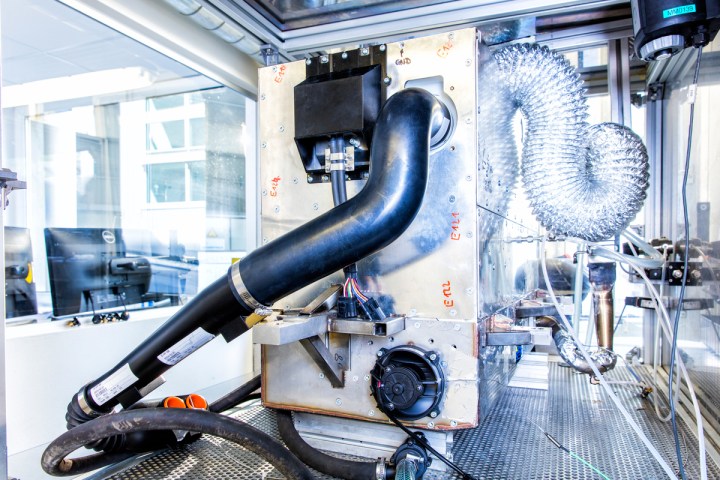
Japan has set a national goal to reduce its reliance on nuclear power and imported fuel by converting to a zero-emission “hydrogen society” for fueling vehicles and homes. Producing hydrogen is expensive and requires a storage infrastructure.
Called an e-Bio Fuel Cell, the Nissan technology uses ethanol in the vehicle to run a power generator, which combines hydrogen from the ethanol with oxygen in the atmosphere to form a reaction that produces electricity to charge the vehicle’s battery, according to a Nissan press release.
By using ethanol as a hydrogen source, there’s no need to store hydrogen in tanks in the car. Ethanol is made from sugar cane and corn. According to Nissan, this system will be less expensive to operate than conventional fuel cells like those being developed by Honda and Toyota. The ethanol-based system also will not require hydrogen storage and re-fueling facilities throughout the country as does conventional fuel-cell technology.
Nissan’s executive vice president, Hideyuki Sakamoto, said, “The cost and energy required to produce hydrogen can be very high, and it also requires significant investment in [fueling and storing] infrastructure. “Compared with that, ethanol is very easy to procure, it is safer to store and lower cost. These are its merits.”
Nissan’s primary application for ethanol-based fuel cells would be commercial electric vehicles such as delivery vans. Operating costs would be similar to electric vehicles and the cruising range per fill-up should be close to 800 kilometers (about 500 miles). No pricing estimates were announced.
Burning ethanol is not emission-free, but the levels are less than with gasoline or diesel fuel. And because ethanol can be produced from corn and sugar cane, it is a renewable resource fuel not reliant on oil imports.
Editors' Recommendations
- Hyundai bets big on hydrogen from sewage, plastic
- Airbus shows off striking design of proposed hydrogen-powered plane
- Hyundai cracks off two new land speed records in fuel cell, hybrid cars
- Next-gen Toyota Mirai confirmed despite continuing issues with hydrogen tech
- Toyota uses hydrogen fuel cells to power one of its Japanese factories




